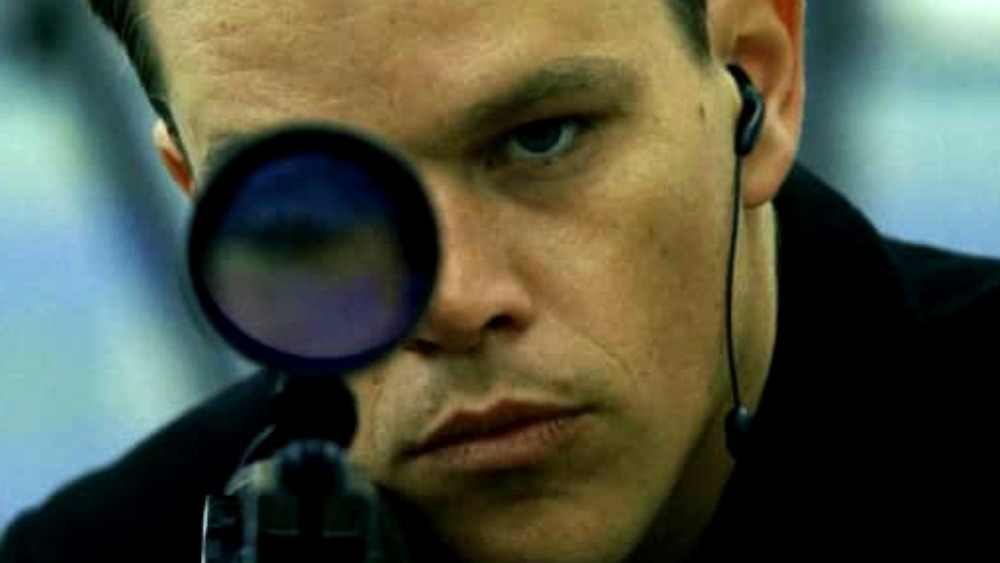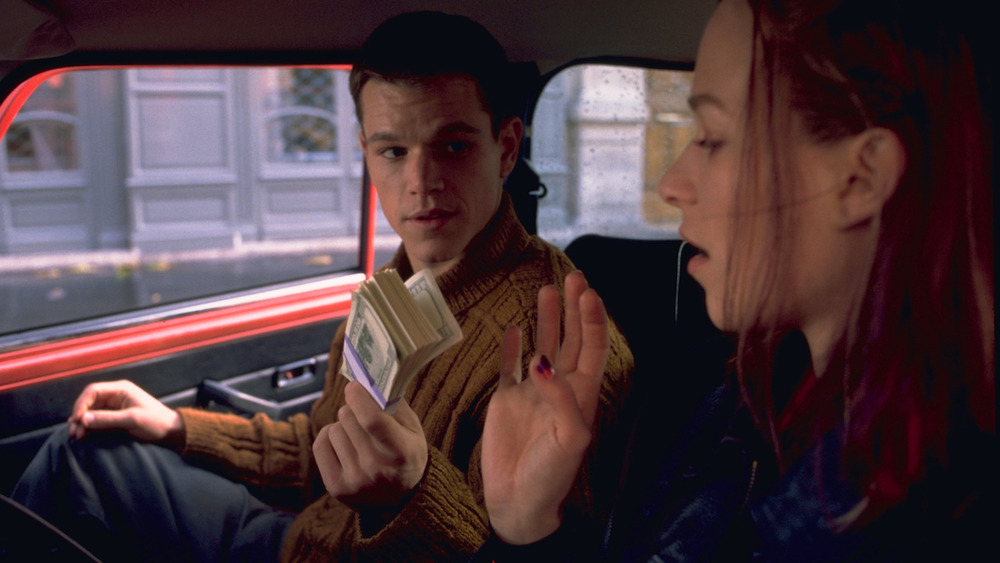The Ending Of The Bourne Identity Explained
Unless you, too, were suffering from dissociative amnesia for some portion of the early 2000s, chances are you know the basics of the Jason Bourne story. A hyper-competent covert operative loses his memories on a mission gone wrong and has to go on the run from his own government and his former superiors from the Treadstone program that trained him — first on a European and then eventually on a globetrotting adventure.
Released in 2002, The Bourne Identity launched a franchise that eventually spanned five films and bumped its star, Matt Damon, up a Hollywood tier from promising up-and-comer to one of the world's biggest movie stars. The film's wariness of the U.S. intelligence apparatus felt timely and relevant in the wake of the September 11 attacks, when suddenly there was so much more focus being placed on the means with which the United States attempted to keep itself secure.
The ending of The Bourne Identity showed what its hero was up against
At the end of The Bourne Identity, Bourne confronts the man behind his pursuit, former Treadstone director Alexander Conklin (Chris Cooper), who pushes him to remember his past and return to the fold. Bourne refuses, but he doesn't kill Conklin either. He tenders his resignation, warns Conklin not to follow him, and escapes. Instead, Conklin is killed by Manheim (Russell Levy), one of the assassins he activated to pursue Bourne who is now acting on the orders of Conklin's boss, CIA Deputy Director Ward Abbott (Brian Cox).
Thus Conklin gives way to Abbott and Treadstone gives way to its successor, the clandestine training program Blackbriar, as Abbott hints in an oversight report at the film's conclusion. Bourne has made an enemy not of a man but of an entire system, one that will always be able to replenish itself with another paranoid bureaucrat worried about the damage an unchecked Jason Bourne might do. The system will continue pursuing its former agent in order to protect its own interests. Bourne has only scratched the surface so far.
But that's a story for the sequels. In the final moments of The Bourne Identity, the hero gets at least a temporary happy ending. He tracks his love interest Marie (Franka Potente) to where she's working at a tourist cafe on the Greek island of Mykonos, and their reunion closes the film.
How The Bourne Identity compares to the book
It's a bit surprising how little of this was in Robert Ludlum's source novel, especially considering the book was written in 1980 when post-Watergate conspiracy thrillers like The Conversation or Three Days of the Condor were still relatively fresh.
In the book, Bourne does end up pursued by agents of his own government. But unlike in the film, their goals are not to silence him as a way of tying up their own loose ends, but rather because his behavior in the wake of his amnesia makes them suspect that he's turned into a traitor. They're eventually persuaded of his innocence and even assist him in the final confrontation.
So who is the big bad of the novel? Bourne spends much of the book hunting an international terrorist mastermind with the alias of Carlos, loosely based on an actual convicted terrorist known as Carlos the Jackal. In doing so, he's attempting to finish his mission from before he lost his memories, which means he's trying to fulfill the plan the government and its clandestine agencies had for him instead of setting his own path. He's still in the system, in other words, rather than working against it as he does in the film.
Ultimately, the ending to the movie version of The Bourne Identity gives Jason Bourne a much-needed moment of catharsis before he gears up to fight against an entire system in the sequels.


